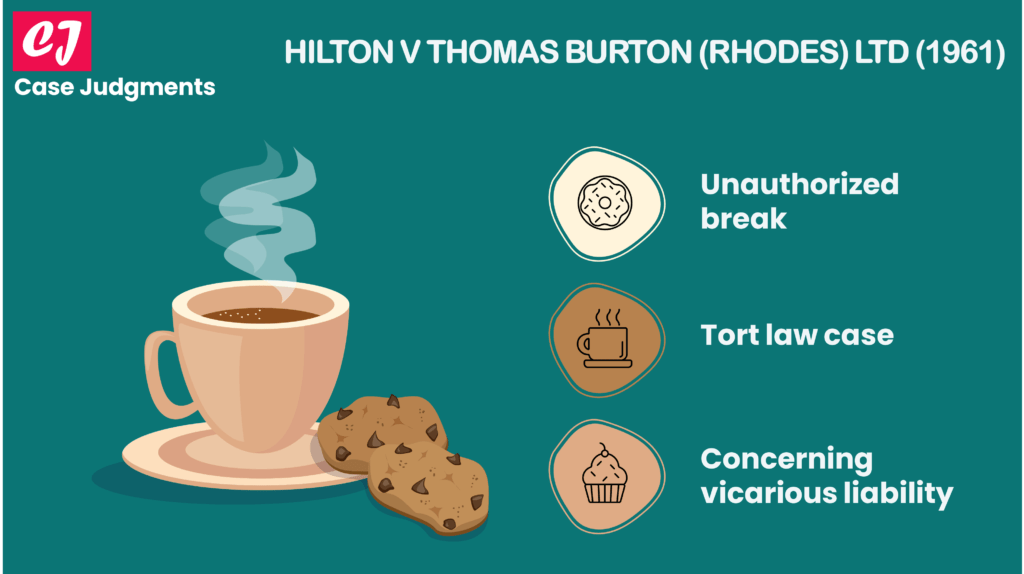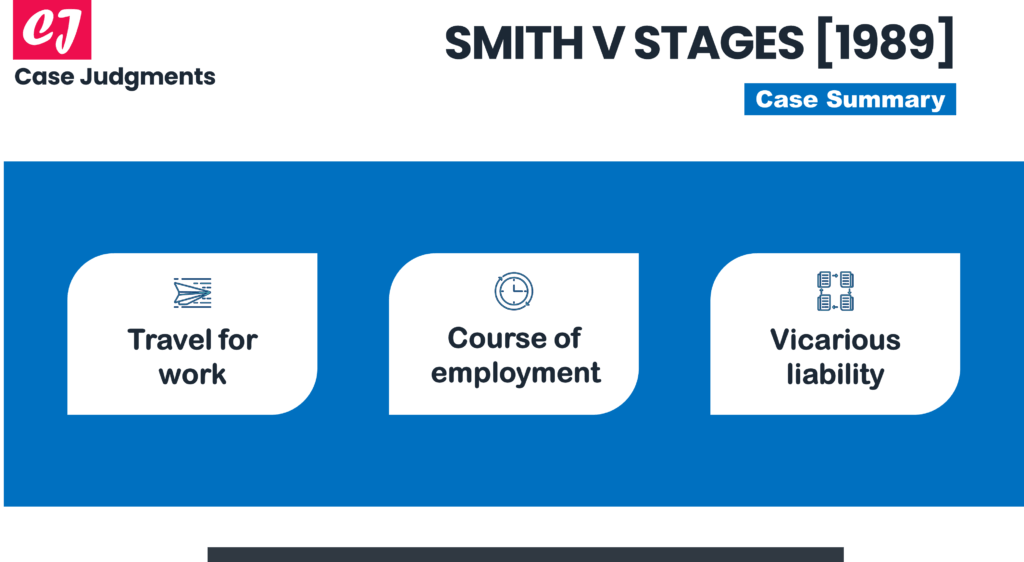
A Quick Summary of Storey v Ashton (1869)
Case name & citation: Storey v Ashton (1869) LR 4 QB 476
Court and jurisdiction: Queen’s Bench Division, England and Wales
Year of the case: 1869
Area of law: Vicarious liability
What is the case about?
Storey v Ashton (1869) is a tort law case on vicarious liability.
Case facts (Storey v Ashton)
The defendant deployed two employees (a clerk and a driver) in a horse and cart to deliver some wine. The driver delivered goods as instructed and rather than returning directly to his employer’s premises, he decided to first drive in another direction to visit the home of his colleague’s relative on personal business (the clerk’s relative). Because of the negligence of the employee who was driving the horse and cart, the claimant (a pedestrian) was run over and injured during the course of that diversion. An action was brought against the employer by the claimant.
Issue
Could the employer be held liable for the incident?
Judgment of the Court in Storey v Ashton
It was determined that the driver was acting outside the course of his employment.
Therefore, the employer was not liable for the negligence of his employee.
The reasoning behind the decision
A person is said to have vicarious liability if they can be held liable for the wrongdoings of another person even though they themselves are not to blame. The relationship between an employer and an employee is probably the most typical example of this.
Generally, an employer is held liable for the tortious acts of his employees if they are carried out in the course of employment.
It then follows that if an employee, during the course of work, engages in a diversion, such as going on “a frolic of his own”, to use a phrase that is popular among judges, engaging in an unauthorized act that is not incidental to the authorized employment duties, he will be considered to have stepped out of the course of employment. That is to say, there won’t be any vicarious liability if the employee engages in conduct that is clearly unrelated to the roles of his employment.
List of references:
- https://core.ac.uk/download/pdf/37899863.pdf
- https://resource.download.wjec.co.uk/vtc/2016-17/16-17_1-7/eduqas/component-2-3-law-of-tort/vicarious-liability/Vicarious%20Liability.pptx
You might also like:
More from tort law:

